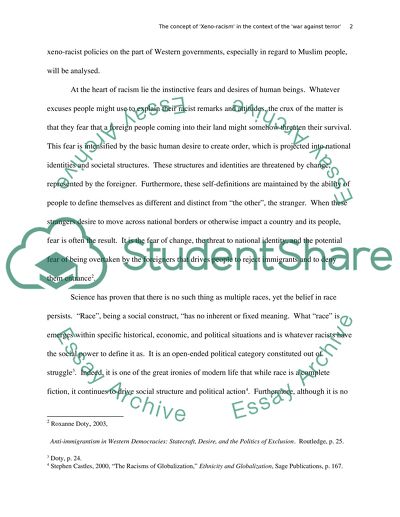Cite this document
(“The concept of 'Xeno-racism' in the context of the 'war against Essay”, n.d.)
Retrieved from https://studentshare.org/miscellaneous/1500587-the-concept-of-xeno-racism-in-the-context-of-the-war-against-terror
Retrieved from https://studentshare.org/miscellaneous/1500587-the-concept-of-xeno-racism-in-the-context-of-the-war-against-terror
(The Concept of 'Xeno-racism' in the Context of the 'War Against Essay)
https://studentshare.org/miscellaneous/1500587-the-concept-of-xeno-racism-in-the-context-of-the-war-against-terror.
https://studentshare.org/miscellaneous/1500587-the-concept-of-xeno-racism-in-the-context-of-the-war-against-terror.
“The Concept of 'Xeno-racism' in the Context of the 'War Against Essay”, n.d. https://studentshare.org/miscellaneous/1500587-the-concept-of-xeno-racism-in-the-context-of-the-war-against-terror.


